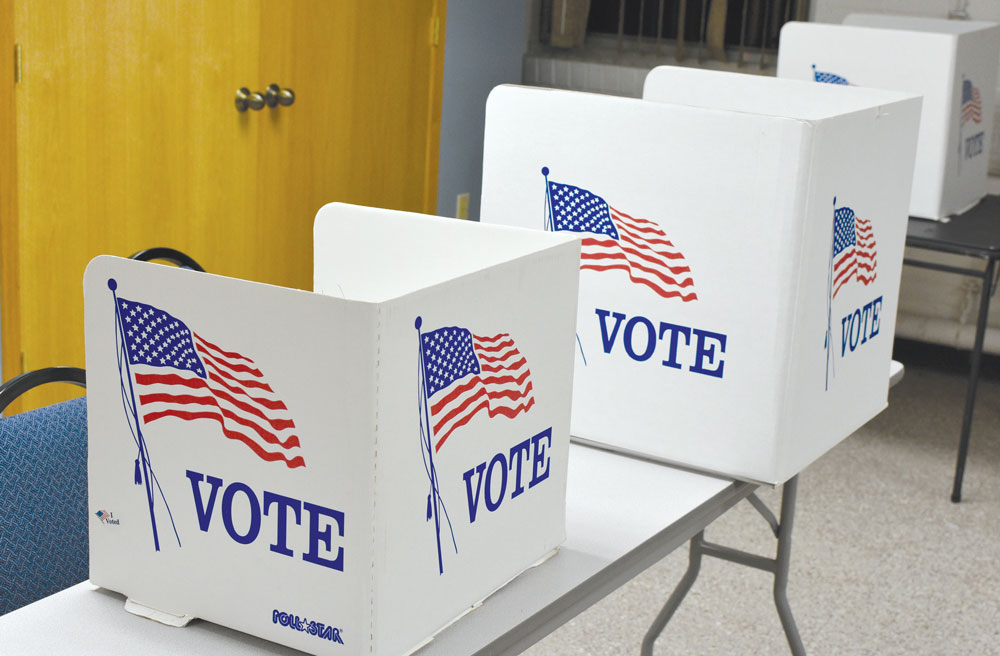Floyd County gets deadline reprieve along with rest of state as tough budget discussions continue
By Bob Steenson, bsteenson@charlescitypress.com
Floyd County – along with the other cities and counties in the state – will get a month longer this year to complete its annual budgeting process, but it will potentially be dealing with fewer property tax dollars in that budget.
The Iowa Legislature this week passed and Gov. Kim Reynolds is expected to sign a bill that will prevent property owners from paying higher taxes because of confusion regarding changes in the state law that deals with how the taxable valuations on property are figured.
Because cities and counties have already started the budgeting process working with the old numbers, the state will extend the budget certification deadline from the usual March 31 to April 30.
A lower tax bill for property owners means less property tax revenue for taxing authorities, unless they decide to raise their levy rates to compensate for the difference.
Floyd County Auditor Gloria Carr said the change would likely result in the county receiving at least $100,000 less in property tax revenue than it had planned on receiving, and the amount could be much more. She said she wouldn’t be sure what the exact amount was until she plugged the new information into the spreadsheets for all the different property classifications
The problem occurred with recent state changes to how apartment buildings and other multiresidential properties were being taxed and having their value added in to all other residential properties, which resulted in a higher residential rollback rate than what was intended.
The rollback rate is that percent of a property’s assessed taxable valuation that is actually used to calculate the property taxes on that property. It is a calculation designed to prevent property taxes from rising too quickly across the state, and there is a statewide rollback rate that is set annually for each property class.
For example, a 55% residential rollback rate on a house with an assessed taxable valuation of $150,000 means that house would only be taxed at 55% of its assessed value, or $82,500.
The residential rollback rate announced by the state that cities, counties and schools began to use on their budget discussions was 56.49%. That figure would have been 54.65% if the classes had not changed.
Because the rollback rate was set higher than intended, Iowa residential property owners would have been paying taxes on a higher percentage of their assessed value. For a $200,000 home, the taxable value would be $3,684 higher under the combined residential property class than it would be if multiresidential properties had not been included, a Legislative Services Agency report found.
That doesn’t mean that example homeowner would pay $3,684 additional in taxes, but he or she would be paying taxes on $3,684 more value. The actual property taxes paid would depend on the total levy rate for city, county, school and other taxing authorities for that property.
Across the state the difference in rollback would have resulted in residential property owners paying about $133 million more in taxes than had been intended when passing tax law changes, according to the LSA.
Floyd County supervisors have been working on the new budget since the first day the new board took office, on Jan. 3.
Supervisor Chair Mark Kuhn has said one of his priorities is to stop raising the Floyd County property tax rate, having said while running for the office that previous increases had been too frequent and too high. The other two new supervisors, Dennis Keifer and Jim Jorgensen, also said that fiscal responsibility was among their highest priorities.
Since a large part of the county budget goes to county employee salaries, that is one area the board has been focusing on. The board starting the budgeting process looking at 3% pay increases, which would be higher than in recent years, but would be less than the recent rates of inflation. During later discussions the board talked about 2% increases, 1% increases, 0% increases, and then went back to 3% increases.
None of the suggestions will be set until the board formally approves the new budget.
The Floyd County Compensation Board had recommend a pay increase of 10% for the county sheriff, 9% for the county auditor, 8.1% for the county attorney and 7.1 percent for the county recorder, treasurer and each of the supervisors.
The supervisors already decided that they would take no pay increase in the new fiscal year which begins July 1, but in order to reduce the other elected officials’ salary recommendations they must reduce every one by an equal percentage.
The board is considering reducing the sheriff’s salary increase to 3%, which would be a 70% reduction from the 10% that the Compensation Board had recommended.
A 70% reduction in the recommendations for the other elected officials would mean pay increases in the new fiscal year of 2.7% for the county auditor, 2.4% for the county attorney and 2.1% for the recorder and treasurer.
Auditor Carr noted that the Board of Supervisors does not have complete control over all county employee salaries.
For example, the Secondary Roads Department has a contract that calls for a 4% pay increase in the next fiscal year. Many Sheriff’s Office employees also have a union contract, and negotiations on that for the new fiscal year will be held on March 2.
Other employees’ salaries are set by autonomous county boards, such as the Board of Health, Emergency Management Commission and Conservation Board. The supervisors determine how much those departments will get, but the independent boards ultimately determine how the money will be spent.
For example, if the supervisors set a budget for a department that would allow for 3% salary increases but the department’s governing board of directors wants to grant higher pay increases, the governing board can do that, but then it would have to determine where to cut spending elsewhere in its budget to compensate.
The supervisors have spent a good part of each meeting on budget work since taking office Jan. 3. At certain points in the process public hearings must be held to allow people to offer input on proposed tax rates, but those public hearings will now likely be pushed back because of the extended budget deadline.









Social Share